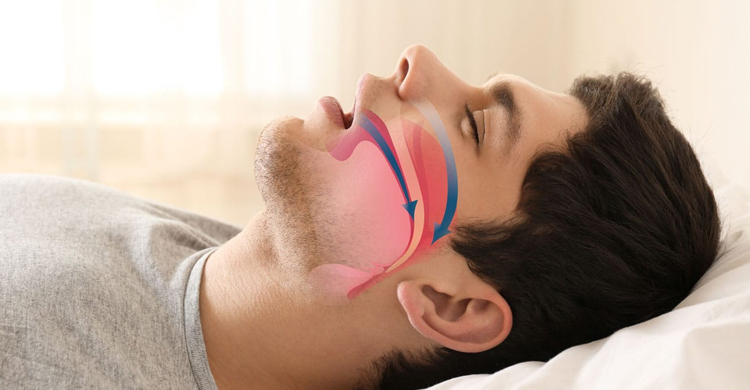
Blog Posts
RECENT BLOG POST


04 Aug 2021


10 Aug 2021


10 Aug 2021


By Dr. Aastha Chandra

06 Feb 2023
Effects Of Mouth Breathing On Dental Health:
You may have heard the term “mouth breather” before. What you may not know, however, is that mouth breathing – even just during your sleep – can be a serious oral health issue. If you think you may be suffering from this condition, here are a few things that you may experience:
1. XEROSTOMIA (DRY MOUTH)
You may not be surprised to learn that mouth breathing has a major impact on your saliva production. When you breathe normally, your sinuses add moisture to the air you inhale. However, this does not occur when you breathe through your mouth, which causes your mouth to become dry.
2. TOOTH DECAY
Dry mouth can change the acidity levels in your saliva and throw off the pH balance in your mouth. Ultimately, this makes a more corrosive environment for your teeth that can facilitate tooth decay. Not to mention, lack of saliva production makes it more difficult to wash away harmful bacteria that
wear down your teeth.
3. GUM DISEASE
Without saliva to wash away the harmful bacteria in your mouth, these bacteria are left to flourish on your teeth and gums. Unfortunately, this does not only cause tooth decay, but it can lead to ‘gingivitis’ as well. Gingivitis is an infection of the gums that, if left untreated, can ultimately lead to gum disease. Gum disease is a serious illness that can be quite detrimental to your overall health. It
has been linked to health issues like respiratory illness, stroke, heart disease, and even complications with diabetes and pregnancy.
4. STRUCTURAL ABNORMALITIES IN CHILDREN
Our bodies are designed to breathe through our noses. However, when children breathe through their mouth during their developmental years, it can cause their bodies to adapt to these new mechanisms. This can cause a child’s posture to change, their face to grow longer and narrower, their nose to become flat and small, and even their lips to change shape – all as a natural means to open up this new airway and facilitate their breathing mechanisms. It can even lead to ‘gummy smiles’ and crooked teeth.
5. HALITOSIS (BAD BREATH)
This condition is often a key part of ‘halitosis’. When there is a major decrease in saliva production, the mouth can’t cleanse itself and remove debris and particles left behind by food.
6. BRUXISM
Bruxism is an oral para-functional activity of teeth grinding and/ or jaw clenching. As muscles of the body relax during sleep, the tethered tongue, resting low in the mouth, can fall backward and obstruct the airway, causing difficulty in breathing. The brain responds by sending signals to the jaw
to slide forward or protrude, thus opening the airway to allow air into the body. Unfortunately, this protrusive sliding of the lower jaw against the upper jaw causes abrasive grinding of tooth surfaces. Airway related bruxism can lead to loss of tooth structure known as abfractions, cracks in teeth, mobility of teeth, bone loss, pain, and early tooth loss.
7. CHAPPED/ CRACKED LIPS
An open mouth leads to drooling, both awake and asleep, causing chapped lips. Closed-mouth lip seal is efficient at keeping saliva in and air out, but chronic mouth breathers usually find it very difficult to hold their lips together.
To minimize the negative effects of mouth breathing, it is also very important to maintain good oral hygiene by brushing thoroughly twice a day and flossing daily to remove plaque and cavity-forming bacteria. Regular checkups with your dentist will also help catch and fix problems early on when they are small, before they become bigger, more painful, and costly.

